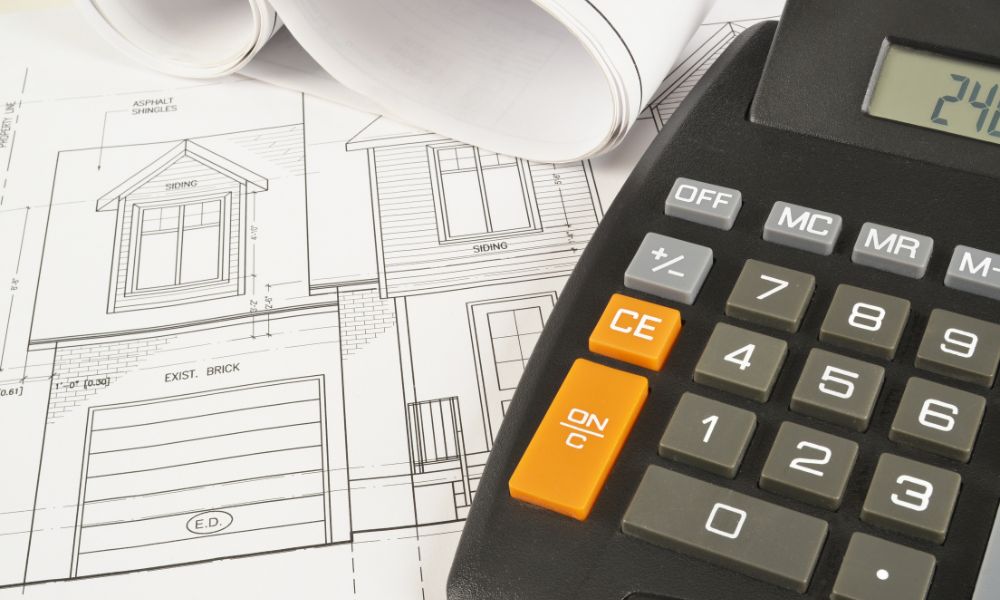Accurate civil cost estimation is critical in ensuring project success, whether for public infrastructure or private developments. The difference between a successful project and one riddled with budget overruns often hinges on the precision of the estimate. This blog explores why accurate cost estimation matters in both government and private sector projects, how to avoid common pitfalls, and how using professional estimating services can enhance project success.
The Role of Civil Cost Estimation in Public and Private Projects
Civil construction projects, whether public or private, often require significant investment and long-term planning. From highways and bridges to private residential developments, cost estimation is the foundation on which a project’s financial structure is built. A precise cost estimate ensures that resources—whether public funds or private capital—are managed efficiently.
In government projects, like public infrastructure or utilities, accountability is paramount. Civil engineers and contractors working on these projects are required to deliver high-quality results while staying within the allocated budget. An inaccurate estimate in the public sector can lead to funding issues, legal complications, and loss of trust from the public. In the private sector, incorrect cost estimation can damage profitability, delay timelines, and lead to financial losses.
Key Differences Between Public and Private Sector Estimating:
- Public Sector: Focuses on transparency, cost control, and meeting regulatory requirements. Projects are often funded by taxpayer dollars, and accountability is critical.
- Private Sector: Prioritizes profitability, efficiency, and client satisfaction. Accurate cost estimation ensures that projects are viable and offer a return on investment.

Factors Influencing Cost Estimation in Civil Projects
Both government and private civil projects involve a myriad of factors that can influence cost estimation. It’s crucial for civil engineers and estimators to consider these elements to create realistic and accurate estimates. Below are the key factors that impact civil cost estimation.
Material Costs
The cost of materials such as concrete, steel, and asphalt can vary based on market conditions, availability, and project location. For large-scale infrastructure projects, slight variations in material prices can lead to significant cost differences. Estimators must account for these fluctuations and include contingency plans for price changes.
Labor Costs
Labor is one of the largest components of civil project budgets. The availability of skilled workers, prevailing wage rates, and the length of time required to complete a project can drastically affect labor costs. Public sector projects may also need to comply with local labor laws or union agreements, which can influence wage rates.
Environmental and Site Conditions
Every project site presents unique challenges that can affect cost estimation. For example, a road built on flat terrain may require fewer resources than one constructed on a hillside or over a body of water. In addition, environmental regulations, such as the need for sustainable building materials or minimizing the impact on local wildlife, may introduce extra costs.
Equipment and Machinery
Heavy equipment, such as excavators, cranes, and bulldozers, is required for most civil projects. The costs associated with renting, purchasing, or maintaining this machinery must be factored into the overall budget. Inefficient use or unanticipated breakdowns can lead to increased expenses.
Permits and Regulatory Compliance
Civil projects, especially in the public sector, must meet stringent regulatory requirements. Obtaining the necessary permits and ensuring compliance with environmental regulations, zoning laws, and safety codes can add to the project’s costs. Inaccurate estimates may overlook these administrative expenses.

How Inaccurate Estimates Can Derail a Project
In both government and private sector projects, inaccurate cost estimation can lead to several problems. Understanding these risks highlights the importance of accurate and thorough estimating.
Budget Overruns
When estimates are too low, projects often run into budget overruns. This situation can cause delays in funding approvals, project cancellations, or the need to source additional funds, which can significantly increase the project’s cost.
Timeline Delays
An inaccurate estimate often fails to account for the true complexity of a project, leading to delays. This can be especially problematic in government projects, where delays can result in public dissatisfaction and political consequences.
Reduced Project Quality
If costs overrun and additional funding is unavailable, contractors may be forced to cut corners. This often results in reduced project quality, which can lead to long-term issues, including increased maintenance costs, repairs, and even potential safety hazards.
Reputation Damage
Inaccurate cost estimation can also damage the reputation of the contractor or civil engineer responsible for the project. In the private sector, this can lead to fewer opportunities for future work. In the public sector, it can undermine public trust and confidence in government operations.
Best Practices for Accurate Civil Cost Estimation
Accurate cost estimation requires a systematic approach, using industry-standard tools and methods to minimize risks and maximize accuracy. Below are the best practices civil engineers and estimators should adopt to improve project success.
Use the Right Estimation Tools
Digital tools like Bluebeam Revu, Kubla, and RSMeans Data provide civil engineers with powerful capabilities for performing accurate quantity takeoffs, calculating earthwork volumes, and gathering reliable cost data. These tools help reduce human error, improve collaboration, and ensure estimates are based on up-to-date market prices.
Perform Regular Risk Assessments
In civil projects, unexpected challenges often arise. To account for these, civil engineers should conduct risk assessments throughout the estimation process. This practice helps identify potential risks, such as environmental conditions or material price fluctuations, and allows for the inclusion of contingency budgets.
Factor in Realistic Contingencies
Adding contingency budgets is essential for managing unexpected costs in civil projects. The industry standard is to include a 5-10% contingency, depending on the project’s complexity. These funds act as a buffer against unforeseen issues such as inclement weather, delays in material delivery, or regulatory changes.
Collaborate with Experts
In civil construction, collaboration between project managers, estimators, and contractors is crucial for ensuring the estimate covers all project elements. Expert input can reveal overlooked factors that could impact costs, such as specialized labor needs or additional environmental regulations.
How Professional Estimating Services Benefit Government and Private Projects
Professional estimating services offer significant advantages for both government and private civil projects. Leveraging these services can lead to improved accuracy, better resource allocation, and more successful outcomes.
Expertise and Accuracy
Professional estimators use their industry expertise to provide highly accurate and reliable estimates. They consider all aspects of the project, from material costs to labor rates, equipment needs, and potential risks, ensuring the estimate is comprehensive and precise.
Time and Cost Savings
By outsourcing the estimating process, both government agencies and private developers can save time and reduce the likelihood of costly errors. Professional services streamline the process, allowing internal teams to focus on other critical project tasks.
Better Budget Control
With professional estimators, there is a lower risk of budget overruns. These experts anticipate potential challenges and factor in all necessary costs, ensuring that projects stay on track financially.
Risk Mitigation
Professional estimators include risk assessments and contingencies in their estimates, minimizing the impact of unforeseen problems. This proactive approach leads to fewer project delays and cost overruns.
Why Accurate Civil Cost Estimation is Essential for Project Success
Accurate cost estimation is the backbone of successful civil projects, whether they are publicly funded infrastructure projects or private developments. Inaccurate estimates can lead to delays, budget overruns, and reduced project quality. By adopting best practices, using advanced tools, and partnering with professional estimating services, civil engineers and contractors can ensure their projects are delivered on time, within budget, and to the highest standards. For expert civil cost estimation services that improve project success, contact Measure Manage today. Our team of professionals delivers accurate, reliable estimates for both government and private sector projects.




